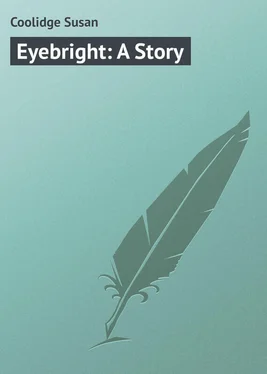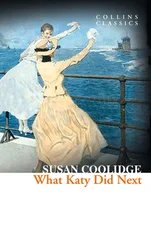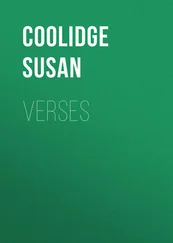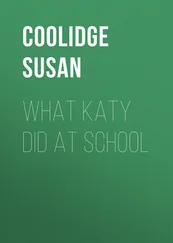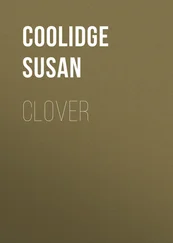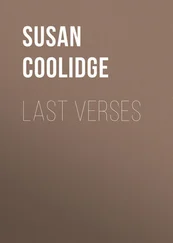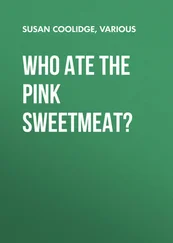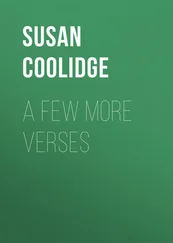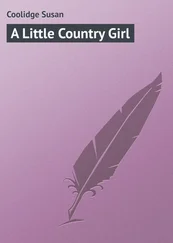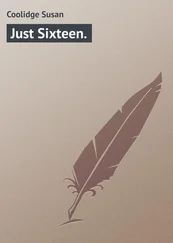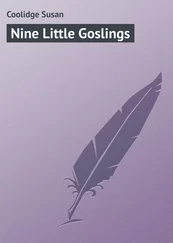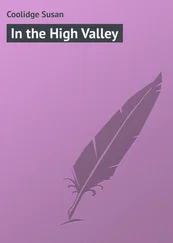Susan Coolidge - Eyebright - A Story
Здесь есть возможность читать онлайн «Susan Coolidge - Eyebright - A Story» — ознакомительный отрывок электронной книги совершенно бесплатно, а после прочтения отрывка купить полную версию. В некоторых случаях можно слушать аудио, скачать через торрент в формате fb2 и присутствует краткое содержание. Жанр: foreign_language, foreign_prose, foreign_children, на английском языке. Описание произведения, (предисловие) а так же отзывы посетителей доступны на портале библиотеки ЛибКат.
- Название:Eyebright: A Story
- Автор:
- Жанр:
- Год:неизвестен
- ISBN:нет данных
- Рейтинг книги:4 / 5. Голосов: 1
-
Избранное:Добавить в избранное
- Отзывы:
-
Ваша оценка:
- 80
- 1
- 2
- 3
- 4
- 5
Eyebright: A Story: краткое содержание, описание и аннотация
Предлагаем к чтению аннотацию, описание, краткое содержание или предисловие (зависит от того, что написал сам автор книги «Eyebright: A Story»). Если вы не нашли необходимую информацию о книге — напишите в комментариях, мы постараемся отыскать её.
Eyebright: A Story — читать онлайн ознакомительный отрывок
Ниже представлен текст книги, разбитый по страницам. Система сохранения места последней прочитанной страницы, позволяет с удобством читать онлайн бесплатно книгу «Eyebright: A Story», без необходимости каждый раз заново искать на чём Вы остановились. Поставьте закладку, и сможете в любой момент перейти на страницу, на которой закончили чтение.
Интервал:
Закладка:
Susan Coolidge
Eyebright A Story
CHAPTER I.
LADY JANE AND LORD GUILDFORD
It wanted but five minutes to twelve in Miss Fitch's schoolroom, and a general restlessness showed that her scholars were aware of the fact. Some of the girls had closed their books, and were putting their desks to rights, with a good deal of unnecessary fuss, keeping an eye on the clock meanwhile. The boys wore the air of dogs who see their master coming to untie them; they jumped and quivered, making the benches squeak and rattle, and shifted their feet about on the uncarpeted floor, producing sounds of the kind most trying to a nervous teacher. A general expectation prevailed. Luckily, Miss Fitch was not nervous. She had that best of all gifts for teaching, – calmness; and she understood her pupils and their ways, and had sympathy with them. She knew how hard it is for feet with the dance of youth in them to keep still for three long hours on a June morning; and there was a pleasant, roguish look in her face as she laid her hand on the bell, and, meeting the twenty-two pairs of expectant eyes which were fixed on hers, rang it – dear Miss Fitch – actually a minute and a half before the time.
At the first tinkle, like arrows dismissed from the bow-string, two girls belonging to the older class jumped from their seats and flew, ahead of all the rest, into the entry, where hung the hats and caps of the school, and their dinner-baskets. One seized a pink sun-bonnet from its nail, the other a Shaker-scoop with a deep green cape; each possessed herself of a small tin pail, and just as the little crowd swarmed into the passage, they hurried out on the green, in the middle of which the schoolhouse stood. It was a very small green, shaped like a triangle, with half a dozen trees growing upon it; but you know, and to Miss Fitch's little men and women "the Green" had all the importance and excitement of a park. Each one of the trees which stood upon it possessed a name of its own. Every crotch and branch in them was known to the boys and the most daring among the girls; each had been the scene of games and adventures without number. "The Castle," a low spreading oak with wide, horizontal branches, had been the favorite tree for fights. Half the boys would garrison the boughs, the ohther half, scrambling from below and clutching and tugging, would take the part of besiegers, and it had been great fun all round. But alas, for that "had been!" Ever since one unlucky day, when Luther Bradley, as King Charles, had been captured five boughs up by Cromwell and his soldiers, and his ankle badly sprained in the process, Miss Fitch had ruled that "The Castle" should be used for fighting purposes no longer. The boys might climb it, but they must not call themselves a garrison, nor pull nor struggle with each other. So the poor oak was shorn of its military glories, and forced to comfort itself by bearing a larger crop of acorns than had been possible during the stirring and warlike times, now for ever ended.
Then there was "The Dove-cote," an easily climbed beech, on which rows of girls might be seen at noon-times roosting like fowls in the sun. And there was "The Falcon's Nest," which produced every year a few small, sour apples, and which Isabella Bright had adopted for her tree. She knew every inch of the way to the top; to climb it was like going up a well-known staircase, and the sensation of sitting there aloft, high in air, on a bough which curved and swung, with another bough exactly fitting her back to lean against, was full of delight and fascination. It was like moving and being at rest all at once; like flying, like escape. The wind seemed to smell differently and more sweetly up there than in lower places. Two or three times lost in fancies as deep as sleep, Isabella had forgotten all about recess and bell, and remained on her perch, swinging and dreaming, till some one was sent to tell her that the arithmetic class had begun. And once, direful day! marked with everlasting black in the calendar of her conscience, being possessed suddenly, as it were, by some idle and tricksy demon, she stayed on after she was called, and, called again, she still stayed; and when, at last, Miss Fitch herself came out and stood beneath the tree, and in her pleasant, mild voice told her to come down, still the naughty girl, secure in her fastness, stayed. And when, at last, Miss Fitch, growing angry, spoke severely and ordered her to descend, Isabella shook the boughs, and sent a shower of hard little apples down on her kind teacher's head. That was dreadful, indeed, and dreadfully did she repent it afterward, for she loved Miss Fitch dearly, and, except for being under the influence of the demon, could never have treated her so. Miss Fitch did not kiss her for a whole month afterward, – that was Isabella's punishment, – and it was many months before she could speak of the affair without feeling her eyes fill swiftly with tears, for Isabella's conscience was tender, and her feelings very quick in those days.
This, however, was eighteen months ago, when she was only ten and a half. She was nearly twelve now, and a good deal taller and wiser. I have introduced her as Isabella, because that was her real name, but the children and everybody always called her Eyebright. "I. Bright" it had been written in the report of her first week at Miss Fitch's school, when she was a little thing not more than six years old. The droll name struck some one's fancy and from that day she was always called Eyebright because of that, and because her eyes were bright. They were gray eyes, large and clear, set in a wide, low forehead, from which a thick mop of hazel-brown hair, with a wavy kink all through it, was combed back, and tied behind with a brown ribbon. Her nose turned up a little; her mouth was rather wide, but it was a smiling, good-tempered mouth; the cheeks were pink and wholesome, and altogether, though not particularly pretty, Eyebright was a pleasant-looking little girl in the eyes of the people who loved her, and they were a good many.
The companion with whom she was walking was Bessie Mather, her most intimate friend just then. Bessie was the daughter of a portrait-painter, who didn't have many portraits to paint, so he was apt to be discouraged, and his family to feel rather poor. Eyebright was not old enough to perceive the inconveniences of being poor. To her there was a great charm in all that goes to the making of pictures. She loved the shining paint-tubes, the palette set with its ring of many-colored dots, and the white canvases; even the smell of oil was pleasant to her, and she often wished that her father, too, had been a painter. When, as once in a great while happened, Bessie asked her to tea, she went with a sort of awe over her mind, and returned in a rapture, to tell her mother that they had had biscuits and apple-sauce for supper, and hadn't done any thing in particular; but she had enjoyed it so much, and it had been so interesting! Mrs. Bright never could understand why biscuits and apple-sauce, which never created any enthusiasm in Eyebright at home, should be so delightful at Bessie Mather's, neither could Eyebright explain it, but so it was. This portrait-painting father was one of Bessie's chief attractions in Eyebright's eyes, but apart from that, she was sweet-tempered, pliable, and affectionate, and – a strong bond in friendship sometimes – she liked to follow and Eyebright to lead; she preferred to listen and Eyebright to talk; so they suited each other exactly. Bessie's hair was dark; she was not quite so tall as Eyebright; but their heights matched very well, as, with arms round each other's waist, they paced up and down "the green," stopping now and then to take a cookie, or a bit of bread and butter, from the dinner-pails which they had set under one of the trees.
Читать дальшеИнтервал:
Закладка:
Похожие книги на «Eyebright: A Story»
Представляем Вашему вниманию похожие книги на «Eyebright: A Story» списком для выбора. Мы отобрали схожую по названию и смыслу литературу в надежде предоставить читателям больше вариантов отыскать новые, интересные, ещё непрочитанные произведения.
Обсуждение, отзывы о книге «Eyebright: A Story» и просто собственные мнения читателей. Оставьте ваши комментарии, напишите, что Вы думаете о произведении, его смысле или главных героях. Укажите что конкретно понравилось, а что нет, и почему Вы так считаете.
